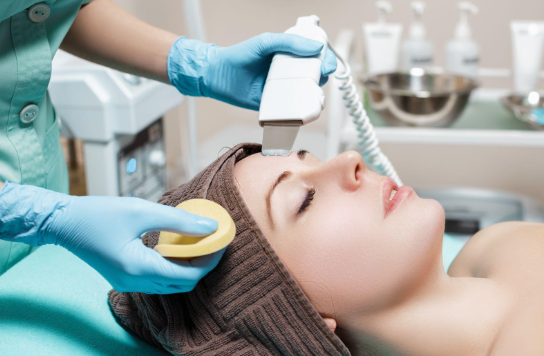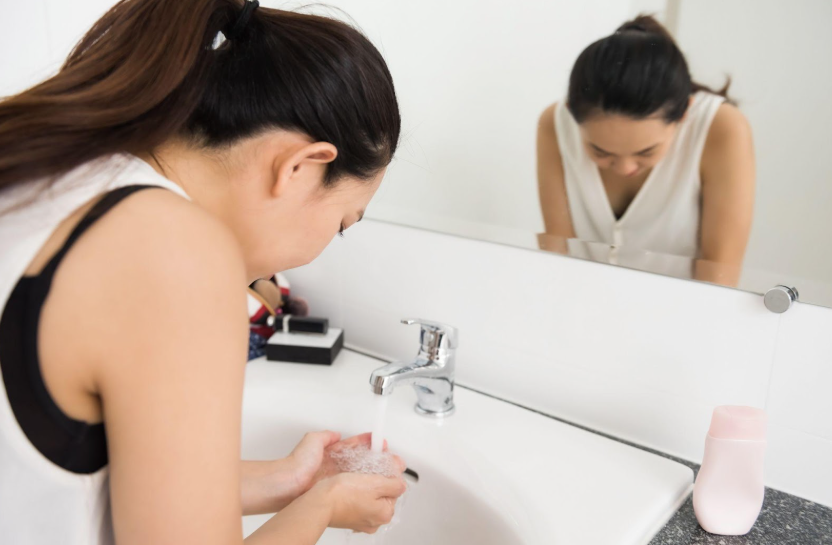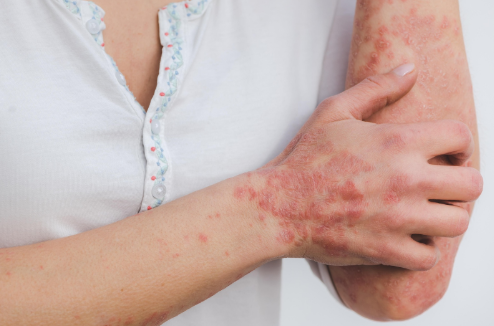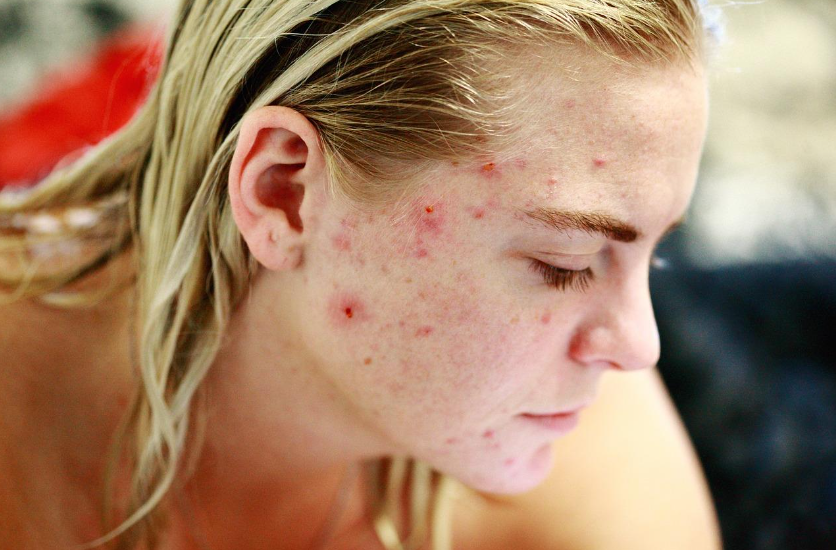Rosacea, Eczema, and Psoriasis – Skin Conditions That Worsen in The Winter
Lauren Aycock, FNP-BC • January 3, 2018

Dermatologists are loud and proud in the summer time down here. Our messages typically involve reminding you to wear sunblock and limit your UV exposure, seeking our counsel for excessive sweat glands, or visiting us for cosmetic procedures before starting your summer vacation. However, we have experienced some severely cold weather in Hattiesburg and the surrounding areas this year. When you think of skin conditions worsening with the weather conditions down here in south Mississippi you don’t often think of how the cold weather can affect your skin, especially when you have a pre-existing skin disease. We don’t often discuss how cold weather changes the way you treat or manage certain skin conditions, because the heat is what we primarily deal with in this area, but it does in fact make a significant difference in augmenting the severity of certain skin conditions. Considering this harsh cold weather we have experienced as of late we thought it important to discuss such skin conditions.
We see a number of conditions that flare-up during the winter, but the ones we see augmented the most are eczema, rosacea, and psoriasis. With that, these three conditions will be the ones discussed in this blog.
Rosacea is a skin condition that has a myriad of triggers that can cause it to flare-up regardless of the temperature of your environment. We have previously written blogs that discuss ways to manage many of the more common triggers for rosacea, however, in this one we will only discuss how the cold weather is an offender. For individuals with rosacea, during the winter they almost experience a double whammy when it comes to flare-ups. Not only is the cold weather acting as a catalyst for your condition, the dry heat indoors can further irritate your condition. So how can you best manage your rosacea in this cold weather?
- Guard against the wind: it is cold outside, and it can get windy as well and this will only further irritate your skin. Try and dress so that your cheeks and nose are shielded against the wind when going outside. This can be done by wearing a scarf.
- Limit exposure to heat sources: as if the cold weather was not irritating enough, your skin is often exposed to irritating heat while trying to stay warm during the winter. Sources for irritating heat can come from that hot bath you take at the end of the day or the blast of hot air keeping your house cozy. By no means do we suggest that you freeze, but be conscientious of ways your rosacea may become irritating. Use lukewarm water as often as you can to keep the condition from flaring.
- Stay on top of your medications: if you have medicines to help you manage your disease, be sure to take them and stick to your dermatologist’s recommended therapy.
- Humidify: you can use a humidifier at home to help prevent your rosacea from drying out and becoming uncomfortable. This will help alleviate the dryness you experience between harsh cold weather and drying indoor heat.
- Seek help from Pine Belt Dermatology: if you are having trouble managing your condition, come see us! We will be able to help find a more suitable way to manage your rosacea.
Eczema is another condition that can become infuriating during the winter time. Like rosacea, eczema is effected twofold in that the cold weather and the indoor heat dries the eczema out. Eczema has many triggers that can cause it to flare, but there are certain steps that you can take to minimize the discomfort experienced during the winter months.
- Moisturize daily: the number one irritant during the winter months is eczema drying out, so to prevent that you should moisturize your skin vigilantly. When washing with soap it is ideal to use moisture-rich soap that contains as little fragrance as possible. In addition to that you should moisturize your skin at least one other time throughout the day. Pine Belt Dermatology offers high quality moisturizers for sale at our clinics that could help you manage your eczema.
- Use Topical Steroids: steroid creams are typically recommended by dermatologists when trying to manage eczema. If you have steroid cream, use it on the spots that flare up to help minimize the itching that you experience.
- Humidify: you can help alleviate the damage done by the dry conditions of the weather if you use an in-home humidifier.
- Wear sunscreen: the winter sun dries out your skin in conjunction with the dry climate. By wearing sunscreen, you not only will protect it from the drying of the sun, but you will also help moisturize the skin to offset the dry weather.
Psoriasis is another condition that we will see flare up during the winter months. Psoriasis flares, like eczema, can be infuriating to deal with. Most individuals with psoriasis dread winter months for this very reason, and most individuals find that their ability to manage their disease diminishes significantly during the winter. This is as true for Hattiesburg, Mississippi and surrounding areas as it is for individuals who have psoriasis in colder areas of the country. The good news, is there are ways to help alleviate the discomfort you experience when it is cold outside. Below are a few ways you can reduce the risk of flares in wintertime.
- Moisturize: similarly to eczema, the biggest issue with psoriasis in the winter is the plaques drying out. By keeping the skin moisturized and hydrated you can prevent redness and itching of the plaques. A general rule of thumb when it comes to moisturizing the affected areas is the thicker the ointment or cream used the better it will be at locking water into your skin.
- Soak in the bath rather than take a hot shower: hot showers can actually remove moisture from your skin, thus compounding the flares you will experience when your skin comes in contact with the cold weather. Showers are fine as long as they are short. However, long warm baths can help you relax and moisturize your skin. You can put oil, oatmeal, or Epsom salt in your bath to help soothe your itching flares. About a 15-minute soak will do the trick. If you apply moisturizers to your skin after a bath it will further enhance your ability to manage your psoriasis.
- Drink water: staying hydrated during a season when your skin will typically be extremely dry will help you manage your disease.
- Humidifier: like with eczema, you can turn on a humidifier in your home to help prevent your skin from becoming too dry from the heat.
If you or a loved one have any of the above-mentioned conditions, you know how dreadful winter months can be. Hopefully the management tips I provided will help you prevent the usual flare-ups experienced with cold weather. If you have one of these skin conditions, your best strategy is to avoid conditions that will trigger symptoms. Try to keep your skin warm and moisturized, and avoid exposing it to extreme temperature changes whenever possible. Even if you are familiar with treating or managing your skin condition and you are accustomed to avoiding weather conditions that intensify the disease, don’t be afraid to seek help from one of our providers at Pine Belt Dermatology. Winter adds an extra level of complexity to managing skin conditions and my colleagues and I can help you come up with a strategy to better manage your condition and reduce your risk of developing flare-ups in this Mississippi winter.

Your skin, the body's largest organ, is a vital indicator of your overall health. Changes in its appearance can signal underlying medical conditions that may require attention. Whether it’s ensuring you’re getting the right nutrients, managing stress, or seeking professional care, being attuned to what your skin tells you makes it easier to stay on top of your health.

Achieving healthy, glowing skin begins with an effective cleansing routine. However, small mistakes can disrupt your skin’s natural balance, leading to irritation, breakouts, or premature aging. Avoiding these common errors and incorporating advanced techniques can significantly impact your skincare journey.

You’ve likely felt it in your life: that uncomfortable feeling of tightness, flakiness, and sometimes even itchiness that can make your skin look and feel less than its best. But what exactly causes dry skin, and how do you treat it? Don’t fret because we’ve put together some treatment tips that can help your dry skin regain its moisture.








